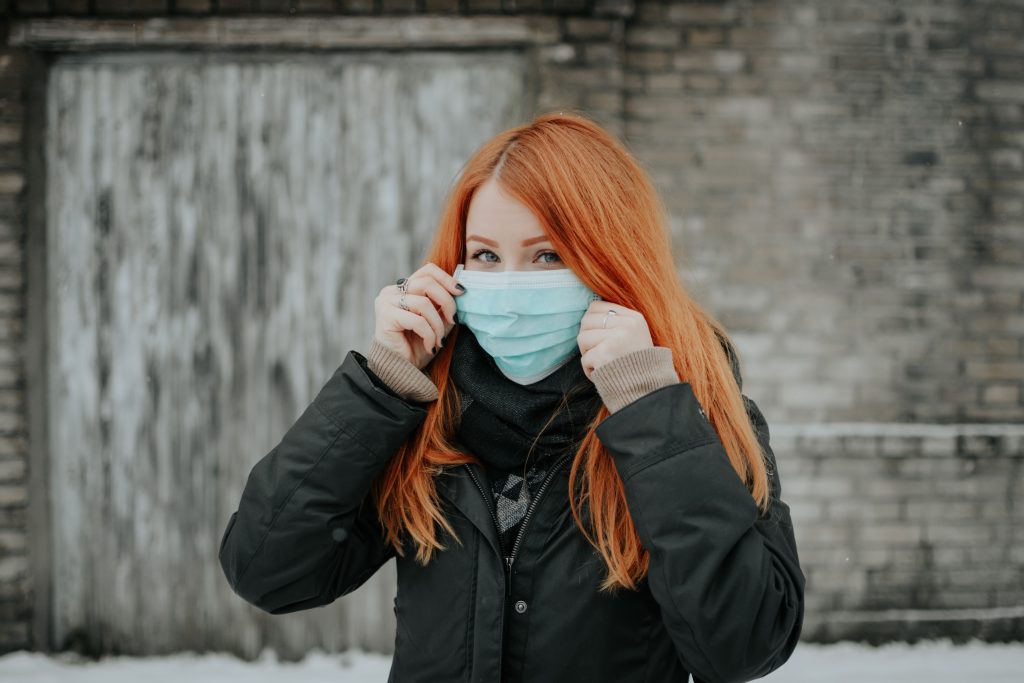With the ‘new normal’ rolling out as the country opens for business you might be asking your staff and customers to wear some form of face mask when they visit your shop or business or even just going outside in public yourself for any reason so we thought it was a good time to have a look in more detail at face masks, what they are and how they work.
The First (Modern) Face Masks
In 1897 Fluegge had demonstrated the transfer of bacteria during normal conversation. This was the first time that Doctors realised the danger of disease being transferred by exhalation from person to person. That same year Johann Von Mikulicz Radeck described the surgical mask composed of one layer of gauze. In 1898 Huebner recommended that masks should be constructed from 2 layers of Gauze should be used during operations.
Increasing the layers improves the face masks efficiency. Over the years, since the turn of the 18th-century, surgical face masks have evolved in material and construction and are now highly efficient, reducing the infection rate while wearing a mask to around 10% when they are worn.
Face masks are now available in many different types including bandanas, fabric/cloth face masks, dust masks, single-use or reusable masks. Over the first few months of 2020, a whole cottage industry of craft made, homemade and high fashion face masks have flooded onto the market. Due to the range available now it’s very difficult to understand what the differences are and what to look for.
You would be forgiven if you were a bit confused as there are a lot of options/variations out there and it’s a whole new world for many of us to understand.
What is a Face Mask?
A face mask is a form of personal protective equipment (PPE) that generally fits loosely over the mouth and nose to reduce the expulsion of bacteria-laden droplets from the nose and mouth while simultaneously reducing the inhalation of other peoples’ expulsions.
How Does a Face Mask Work?
The face mask acts as a shield against large exhaled cough and sneeze droplets from others, but cannot protect against smaller droplets. It will also block the release of droplets into the air from the wearer.
A face mask won’t completely block coronavirus, but it offers another layer of protection to you and the people around you.
Why Are Face Masks Important?
A face mask is important to reduce the risk of airborne bacteria and viruses being transmitted in a population which is moving in close proximity within buildings and throughout our public transport network which was not designed to allow social distancing to take place. Even our cities are not designed to allow the space to properly maintain social distancing with pavements not more than a meter wide in most places.
A face mask can help to protect you against being infected and more importantly it will reduce the chance that you infect others in your daily life.
Will a Face Mask Protect Against Coronavirus?
Yes, facemasks combined with other preventive measures, such as frequent hand-washing and social distancing, help slow the spread of the virus.
Face masks may not stop people catching the virus completely, but they will help prevent the spread.
Are Face Masks Safe?
Yes, but people should refrain from sharing them as this will totally go against the reason they are being worn or repeatedly wearing the same one without either washing or replacing it.
How Should A Face Mask Fit?
The face mask should cover the nose and mouth and comfortably fit towards the bridge of your nose. Many masks will fit snugly on the chin to allow a good seal around the mouth.
The aim is for the air you inhale and exhale to pass through the mask, not around or under it.
Are they washable?
Some face masks are reusable so check before you buy as there may be specific washing instructions. Surgical face masks are single-use so should be disposed of properly after use.
Can Face Masks Be Used Twice?
Typically a face mask should not be used more than once as they will collect bacteria and become less efficient as you breathe through them. Surgical face masks tend to have a time limit of use on them, check the instructions prior to wearing for clarity.
How To Use A Face Mask
- When putting a face mask on for the first time ensure that you have washed your hands and face before you start
- Take the face mask from its packaging only touching the outside of the mask, avoiding contact with the part which covers the mouth is essential to avoid contamination
- Place the mask with one hand over your nose and mouth
- Secure the elastic over both ears (or behind the head dependent on the type of mask) while continuing to hold the mask in position.
- You are now ready for the outside world.
When removing your face mask simply reverse the procedure but ensure that you wash your hands first!
Purchase Your Face Masks Here:
Clear Protection has a range of face masks, including surgical single-use masks, reusable, multifunctional bandannas and cloth masks. We can even print them for you with brand colours and logos should you wish to have something out of the ordinary. Contact the team for more information.

